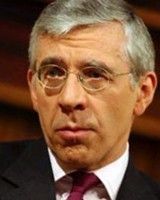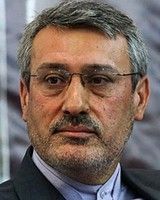London, October 24, 2017 Key Points from a Meeting of the All-Party Parliamentary Group on Iran: Joint Comprehensive Plan of Action (JCPOA,) held at the House of Commons (Committee Room 12.)
Introduction In a well-attended 90-minute meeting staged in Committee Room 12 of the UK’s House of Commons by the All Party Parliamentary Group on Iran and chaired by Richard Bacon MP, the implications of President Trump’s decision to decertify the Iran Nuclear Deal were discussed by a number of former senior British diplomats. [Note: Decertification itself does not automatically lead to a party exiting a deal. In this case, it would allow the setting up of legislative rules enabling Congress to reimpose sanctions on Iran.]
Among the speakers was Mr. Hamid Baidinejad, the Ambassador of the Islamic Republic of Iran (IRI) in London, who presented his government’s reaction to the recent announcement by the US PresidentThe discussions focused on addressing upcoming challenges and a number of key issues which would determine the future of the Iran Nuclear Deal, also referred to as the Joint Comprehensive Plan of Action (JCPOA), and its impact, in the event that America decided to exit the deal in full:
▪ Congressional response in the next 60 days to decertification;
▪ The UK and international position on the Iran Deal;
▪ Iran’s reaction to recent developments;
▪ What might hold the deal together;
▪ UK and EU Trade relations in light of new US sanctions;
▪ Consequences of Collapse?
Presentations from Panel Speakers Visibly supportive of the JCPOA and critical of the recently announced position taken by the US President, speakers made presentations in the following order:
 Former UK Foreign Secretary Jack Straw Began by saying that President Trump wanted to undermine the Iran Deal without actually reneging from the agreement. He had passed it over to Congress, and its ultimate destiny would remain unknown for the time being. However, he stressed that the other five signatories to the agreement, especially the UK, were adamant that the agreement should remain in place.
Former UK Foreign Secretary Jack Straw Began by saying that President Trump wanted to undermine the Iran Deal without actually reneging from the agreement. He had passed it over to Congress, and its ultimate destiny would remain unknown for the time being. However, he stressed that the other five signatories to the agreement, especially the UK, were adamant that the agreement should remain in place.
Jack Straw was of the view that consequences of reneging on the deal would be very serious, as others in the international community would find it difficult to latch on to similar and much- needed arrangements made in the interest of world peace, for example the North Koreans.
Jack Straw ended his comments by saying that given the fact that there was not a single shred of evidence that the IRI had violated any of its obligations under the JCPOA, while the West had clearly fallen short of keeping their earlier promises (e.g. lifting banking restrictions on Iran), the UK government needed to stick with and continue implementing the nuclear agreement.
 Sir Peter Westmacott, former British Ambassador to the US Having previously led the international effort to persuade the US Congress to endorse the JCPOA, Peter Westmacott said that there were a number of reasons why Donald Trump took the position that he did, which he described as “not quite so bad, although the JCPOA has been placed on the verge of collapse”.
Sir Peter Westmacott, former British Ambassador to the US Having previously led the international effort to persuade the US Congress to endorse the JCPOA, Peter Westmacott said that there were a number of reasons why Donald Trump took the position that he did, which he described as “not quite so bad, although the JCPOA has been placed on the verge of collapse”.
Peter Westmacott explained that the US President’s action also needed to be considered with the ‘on-going game of who can outhate Iran’, which was so prevalent these days in Washington. According to him, apart from a lack of meaningful lobbying by the IRI in Washington circles, another serious impeding factor was the incentive on the part of Trump to try and undo everything that his predecessor, Barack Obama, had considered as part of his legacy.
He said Donald Trump had nonetheless not gone as far as he wanted, because the JCPOA was, in his words, “as good as it gets” — suggesting that the Trump Administration, if it could, would be more than happy to secure a similar deal with the North Koreans. It was his view that the present situation was different from before, when there had been a strong lobby, supported by The American Israel Public Affairs Committee (AIPAC) and its friends, wanting to ‘kill the deal’.
Peter Westmacott added that points of disagreement between Iran and the US were many, and despite the fact that contentious factors prevailed, the JCPOA was achieved on the basis that it made any agreement solely relevant to Iran’s nuclear-related issues and nothing else. He said that while Trump might have other matters on his mind, it was nonetheless a fact that no better deal was available at this time.
It was Peter Westmacott’s view that in light of the fact that the sanctions regime had failed to stop the Iranian nuclear program (having seriously damaged the Iranian economy), Donald Trump had been poorly advised regarding the course he had undertaken. He said his reference to the ‘Arabian Gulf’ had further aggravated matters, and he suspected that a role in all of these activities had been played by the likes of former White House Chief Strategist Steve Bannon.
Peter Westmacott concluded that in the next 60 days, it would become clear whether Congress might be likely or not to apply new sanctions against Iran. He said it was yet to be seen whether the upcoming period would be one of “pause for thought rather than a precursor for killing JCPOA.” [Periods and commas inside quotation marks as per American punctuation style]
 The Rt. Hon. Alistair Burt MP, Minister of State for Middle East, Foreign and Commonwealth Office Alistair Burt began his comments by addressing the UK government’s position on the recent developments relating to the Iran Deal. He said that the history of recent relations between Iran and the UK had not been an easy one, though a good relationship had now been restored. He felt it was important to have a type of relationship where you could discuss issues.
The Rt. Hon. Alistair Burt MP, Minister of State for Middle East, Foreign and Commonwealth Office Alistair Burt began his comments by addressing the UK government’s position on the recent developments relating to the Iran Deal. He said that the history of recent relations between Iran and the UK had not been an easy one, though a good relationship had now been restored. He felt it was important to have a type of relationship where you could discuss issues.
Alistair said that he had recently been in Iran for the inauguration of President Rouhani and had the opportunity of holding talks with his opposite number Abbas Araghchi as well as the Iranian Foreign Minister, Mohammad Javad Zarif, with whom he had also conferred during the recent session of the UN General Assembly in New York.
He said that, given the recent build-up, the fate of the JCPOA had been a central point of discussion, and during the recent General Assembly session, a meeting between all of the signatories had taken place. This, according to him, was the very first time that Rex Tillerson and Zarif had been in a room together.
Alistair Burt said a key factor which Zarif had correctly alluded to in the course of the meeting in New York had been the reality that the JCPOA had not been reached on the basis of mutual trust but rather, mutual distrust. He said that for its part, the UK was content with the verifications concerning Iran’s obligations as recorded by the International Atomic Energy Agency (IAEA).
Having said that, Alistair Burt added that the UK had never taken the view that the JCPOA was an ‘all encompassing agreement’. He reiterated that there were key areas of disagreement that continued to exist with Iran on issues outside what had been simply an agreement having to do with Iran’s nuclear program.
Alistair Burt concluded that it was the view of the British government that the JCPOA should remain in place.
 Hamid Baidinejad, IRI Ambassador in London Hamid Baidinejad began by saying that entering into the JCPOA had been a very difficult matter for Iran in the aftermath of American interventions that had sabotaged previous efforts in 2003 and had come very close to full resolution. He said that 8 years later, when it had become apparent to all that the sanctions were not working, Iran had once again tried to “reinvigorate the negotiations” in line with a new mandate that was given to President Rouhani upon his election to the presidency.
Hamid Baidinejad, IRI Ambassador in London Hamid Baidinejad began by saying that entering into the JCPOA had been a very difficult matter for Iran in the aftermath of American interventions that had sabotaged previous efforts in 2003 and had come very close to full resolution. He said that 8 years later, when it had become apparent to all that the sanctions were not working, Iran had once again tried to “reinvigorate the negotiations” in line with a new mandate that was given to President Rouhani upon his election to the presidency.
Hamid Baidinejad then turned his attention to the US, and said Americans still fail to appreciate post-revolutionary Iran and the aspirations of its people. In terms of the JCPOA (a process he had been involved with prior to assuming his post in London), he said that from the earlier talks in Muscat which had paved the way for the ‘5+1” discussions, it had been decided to focus only on the nuclear issues and nothing else. Therefore, it was strange for Iran that the US should now be raising other issues that had nothing to do with the agenda unanimously agreed to by all participating parties.
Rejecting the US President’s statement that the scope of previous negotiations should have been wider, Hamid Baidinejad said that in his view the US was acting like a ‘rogue state’ by trying to invalidate previous agreements, in violation of every principle of international law. He said, “Based on such behaviour, how can anyone trust the US?” And how, with such an attitude, could the US ever hope to solve its current crisis with North Korea?
Hamid Baidinejad said that more importantly, Donald Trump had shown no respect for the Iranian people by referring to the Iranian nation (not government) as terrorists – an indication that he still had false hopes of promoting regime change in Iran. This, in his view, gave a clear message that people in the White House were not in touch with reality.
Hamid Baidinejad concluded his remarks by saying that from the perspective of the IRI, there was no alternative but to maintain the JCPOA, and resist futile efforts on the part of the US to refute international law.
 Sir Simon Gass, former Political Director of the Foreign & Commonwealth Office, UK Lead at the Iran Nuclear Negotiations, and former British Ambassador to Iran Simon Gass began his remarks by saying that exactly five years and one month ago, Benjamin Netanyahu had stood on the podium at the UN General Assembly and displayed the picture of a deadly nuclear bomb which he said Iran was very close to having in its possession. He said it was important to understand that because of the negotiations that had ensued, that concern had been dealt with, and Iran had finally agreed to subject itself to the most intrusive of inspection regimes.
Sir Simon Gass, former Political Director of the Foreign & Commonwealth Office, UK Lead at the Iran Nuclear Negotiations, and former British Ambassador to Iran Simon Gass began his remarks by saying that exactly five years and one month ago, Benjamin Netanyahu had stood on the podium at the UN General Assembly and displayed the picture of a deadly nuclear bomb which he said Iran was very close to having in its possession. He said it was important to understand that because of the negotiations that had ensued, that concern had been dealt with, and Iran had finally agreed to subject itself to the most intrusive of inspection regimes.
Simon Gass said this therefore left no doubt that, had an agreement not been reached, the consequences would have been far graver. For that reason, prolonging the life of the JCPOA was of paramount importance. As a result, he welcomed the positions that had been adopted by various EU parties in support of the JCPOA. He said it was important for the UK and the EU to defend the piece of paper that they had signed as well as the commitments they had made to Iran on the economic front.
Simon Gass said that in talking to Congress, it was important that the UK should also highlight the downside of invalidating the JCPOA – in other words, the need to reach a similar kind of agreement with North Korea, as well as the dynamic of the position they are putting their allies through, such as the prospect of the UK voting with China and Russia against the US at the UN Security Council!
Simon Gass added that it was essential for all parties to remain cautious about “accepting a poison bullet sent to us” in the shape of a new ‘Crocker-Cotton’ Senate resolution imposing unilateral ballistic sanctions on Iran, which according to him was nothing short of a “more elegant way of collapsing the JCPOA and putting the blame on Iran”.
Instead, Simon Gass expressed the view that he would like to see a dialogue with the IRI to determine what the Iranian civilian nuclear program would look like at the end of the period projected for the JCPOA. He said this was essential, since it was clear that Iran at that time would not be given the right to resume and proceed with plans and policies it was forced to roll back on when the JCPOA was signed in July 2015.
Simon Gass concluded his remarks by criticizing the “tonality of Donald Trump,” saying it was too severe, and contained too many harsh words. He said you could not remove the IRI or its influence from the Middle East, and it was difficult to achieve a “Win-Lose” resolution, which was in any case dangerous and would inevitably lead to damaging Shia-Sunni divisions in the region. The only alternative was entering into the complicated zone of building bridges.
 Ellie Geranmayeh, Senior Policy Fellow, European Council on Foreign Relations (ECFR) Ellie Geranmayeh began her remarks by highlighting a new study carried out by the ECFR entitled “The coming clash: why Iran will divide Europe from the United States.” She said the publication argues that the divide between Europe and the US over Iran policy is set to deepen. The Trump administration’s heated rhetoric and recent actions indicate US strategy is exclusively focused on isolating and containing Iran. The ramifications of this policy go beyond damaging the non-proliferation architectures Europe has helped build. It could lead to even greater instability in the Middle East and may severely limit diplomacy with Iran aimed at resolving regional issues.
Ellie Geranmayeh, Senior Policy Fellow, European Council on Foreign Relations (ECFR) Ellie Geranmayeh began her remarks by highlighting a new study carried out by the ECFR entitled “The coming clash: why Iran will divide Europe from the United States.” She said the publication argues that the divide between Europe and the US over Iran policy is set to deepen. The Trump administration’s heated rhetoric and recent actions indicate US strategy is exclusively focused on isolating and containing Iran. The ramifications of this policy go beyond damaging the non-proliferation architectures Europe has helped build. It could lead to even greater instability in the Middle East and may severely limit diplomacy with Iran aimed at resolving regional issues.
Ellie Geranmayeh said that ‘decertification’ of the JCPOA by Trump essentially meant that rhetoric had been put into action. The outcome of this meant that:
- The end game of what the EU and the US want from the IRI is different, with the US wanting regime change.
- The tools and policy options that the EU and the US are willing to use are different.. For example, while the US wants containment, the EU wants engagement and confidence building, and working in other areas with IRI on the back of the JCPOA ( such as tackling ISIS, etc.).
Ellie Geranmayeh said that already the messaging from the EU was quite different, and such differences of approach had manifested themselves most clearly with French President Macron stating that he would be making the first high level visit to Iran on the day that Trump had chosen to decertify the JCPOA.
Ellie Geranmayeh concluded her remarks by saying that the EU needed to stand up to the US over ‘secondary sanctions.’ It was her view that the EU did have some leverage for this, and that it was also essential for the EU to enter a robust dialogue with Iran over a number of non-nuclear related issues.
Qusestions and Answers Some of the key points raised in the ‘Q&A’ session that followed the presentations:
➢ In response to a question about Arab countries urging Western governments to pressure Iran, Simon Gass said it was crucial that the West stopped taking sides, and give due consideration to everyone’s interests.
➢ Ambassador Baidinejad said Iran was paying for the mistakes of the US in the region, for having supported the likes of radical Islamists in Afghanistan and Saddam Hussein in the 8-year war with Iran. He said that even the removal of Saddam Hussein had been uncalculated, with America oblivious to the consequences. He said extremists had filled the vacuum that had been created. and Iran was paying the price for confronting groups like ISIS, which were also threatening Iran (calling it ‘Khorassan,’ the name used to refer to Iran during the Abbasid Caliphate).
➢ Ambassador Baidinejad noted that while the US continued with its “Iran phobia”, it was a fact that Iran was enjoying good relations with Iraq, Syria, Afghanistan and Qatar. He said that Iran wanted regional peace and stability so President Rouhani could deal effectively with his number one priority, which was improving the economy and providing jobs and prosperity to the Iranian people.
➢ Regarding the possibility of ‘snap-back sanctions,’ Ambassador Baidinejad said that such a prospect was not a realistic option given that it could only happen were Iran to forego its obligations under the JCPOA – something that has not happened and will not happen. He said that by rights, what the US had done was in breach of the agreement, and in a just world, instead of further talk of punishing Iran, sanctions needed to be applied against the US.
➢ Some business concerns were raised by a BAE representative and spokesman for the Iran British Chamber of Commerce. Frustrations around resuming normal business with Iran were outlined. It was suggested that some £10 billion of orders had already been signed with the UK, but that there were concerns over banking restrictions, which meant that nothing serious had come out of the transactions.
➢ Lord Lamont said that smaller European banks with no dollar exposure had been able to do business with Iran, while larger banks were still holding back due to due diligence issues as well as perhaps over compliance with OFAC requirements. Nonetheless, according to him, trade between Iran and the UK had expanded by 40% over the previous year.

